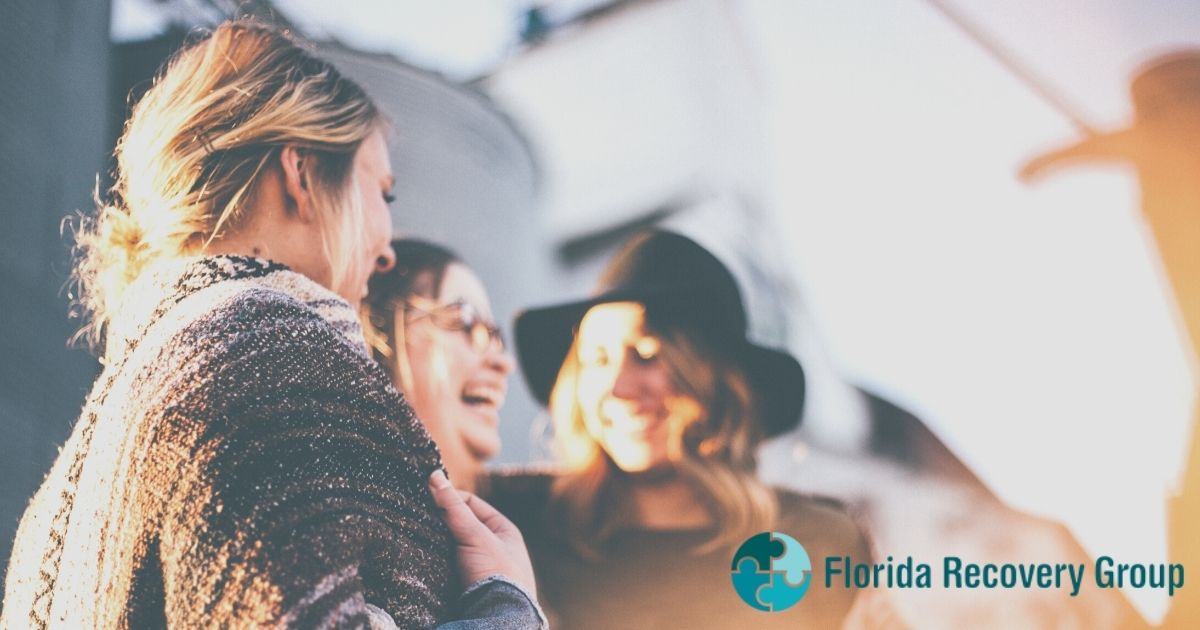
22 Sep A Complete Guide to Drug Rehab Aftercare
Addiction and alcoholism recovery does not end after the completion of an inpatient treatment program. In other words, recovery from drug or alcohol addiction is an ongoing process. To explain, most patients participate in a drug rehab aftercare program after finishing treatment. Aftercare comes in many forms, including support groups like Alcoholics Anonymous (AA), outpatient treatment, sober living programs, or a combination of them all.
Sobriety is challenging, there is no question about it. In response to the difficult nature of maintaining sobriety, individuals have the option to participate in aftercare. Addiction treatment aftercare provides patients with the tools and support they need to continue to recover on a daily basis. For example, patients will develop personalized relapse prevention plans that allow them to cope with challenges and receive additional support as needed.
What are the Different Types of Drug and Alcohol Rehab Aftercare?
Aftercare is a term that refers to a combination of resources, support groups, interventions, or activities that help individuals cope with any difficulties they may face in sobriety. Depending on the individual person’s needs, they may participate in one or a combination of different types of aftercare programs.
Popular types of drug rehab aftercare programs in Delray Beach include:
- Intensive outpatient programming (IOP)
- Outpatient programming (OP)
- Alumni groups
- Sober living homes
- 12-Step programs like AA or NA
Fortunately, aftercare programs are highly flexible. Unlike inpatient treatment, patients are able to focus on their careers, families, or any other responsibilities while participating in aftercare. For example, 12-Step meetings like Narcotics Anonymous (NA) are held in almost every part of the country, all at varying times and locations. This gives each individual the opportunity to attend a meeting at a time convenient for them.
Intensive Outpatient Programming (IOP)
Intensive outpatient programming, or IOP, is considered a step down from PHP or residential treatment. During IOP, patients typically attend only two to three group therapy sessions per week as well as one weekly individual sessions. This allows patients to attend to any other responsibilities they may have while staying focused in their recovery. Also, IOP focuses on reinforcing the coping skills and techniques taught in rehab, encouraging community support, and creating relapse prevention strategies for patients.
Outpatient Programming (OP)
Similar to IOP, outpatient programming (OP), is considered to be a lower level of care. This is beneficial for patients who have completed IOP and wish to continue their aftercare or for individuals with a less flexible schedule. OP provides fewer clinical hours than IOP, allowing patients to have more free time to care for children or go to work. While IOP and OP differ slightly, they focus heavily on the same ideals and practices, such as developing community support and involvement.
Alumni Groups
Alumni groups are defined as support groups created for patients who have completed treatment at the same facility. For example, former patients of Florida Recovery Group can meet together on a weekly basis to discuss recovery and the issues they are currently facing. Attending an alumni program is a great way to remain connected to sober support from your former drug rehab facility.
These groups may meet weekly or monthly, allowing participants to complete community activities, gain mutual support, and connect in other ways related to sobriety and recovery from substance abuse. This form of drug and alcohol rehab aftercare relies heavily on the quality of the rehab program for success. In other words, reputable treatment centers in Delray Beach typically have great alumni group aftercare programs, while less reliable facilities may not have them at all.
Sober Living homes
Halfway houses, or sober living homes, are housing programs that allow individuals early in recovery to reside on property with other recovering people. Each sober living home is different, as some may be associated with a specific treatment center while others are privately owned. Additionally, halfway houses in Delray Beach have a live-in house manager who monitors and keeps track of each resident to ensure their safety and sobriety. This often means that residents are randomly screened for drug and alcohol use, complete chore assignments, have a nightly curfew, and are expected to follow other rules and expectations.
12-Step Programs
12-step meetings are spiritual programs where individuals in recovery share their experience, strength, and hope in relation to addiction and sobriety. There are many different 12-step programs, all using the same guidelines and steps to help individuals recover. For example, 12-step programs include Alcoholics Anonymous (AA), Cocaine Anonymous (CA), Narcotics Anonymous (NA), and many more. The only difference between each form of 12-step program is the addiction of concern.
The ultimate goal of a 12-step program is to become connected with a higher power, gain support from others in recovery, and help suffering alcoholics and addicts learn how to get (and stay) sober. 12-step meetings may be found all across the country, are free to attend, and are considered to be one of the most popular forms of addiction support groups in the United States.
Participate in Drug Rehab Aftercare in Delray Beach
Unfortunately, relapse is a real possibility for many recovering addicts and alcoholics. However, relapse does not have to be a part of your story. By attending inpatient addiction treatment and promptly participating in aftercare, patients learn how to prevent a relapse from occurring. At Florida Recovery Group, we offer inpatient treatment that is followed by the option of participating in an inclusive and individualized addiction treatment aftercare program.
Contact us today for more information about inpatient addiction treatment and how to get started with a drug rehab aftercare program today!





